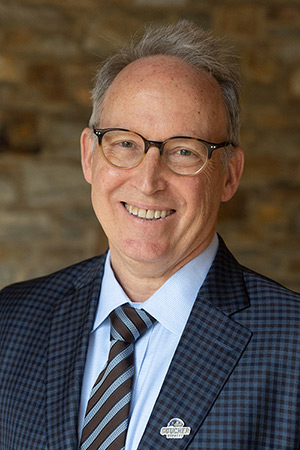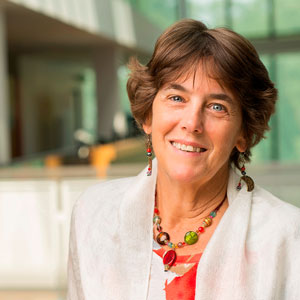M.A.C.S. 10th Anniversary & Symposium Schedule
20/20 Visions: Cultural Sustainability as Resilience
Date: Friday, July 24
NOTE: There will be separate Zoom links for each presentation. Click on the session title for access to the Zoom webinar and for information about the speaker and presentation. Use the password you received in your confirmation emails from registration for access. For issues, please contact amy.skillman@goucher.edu.
Throughout the day and during break time, symposium attendees are invited to hang out in our virtual M.A.C.S. Café. Meet and network with other attendees and the M.A.C.S. community in a casual setting.
10:00 a.m. - Welcome
10:10 a.m. - Opening remarks
10:15 a.m. - Keynote address
Dr. Margaret Kovach – Indigenous Methodologies and Education: Preparing to Listen
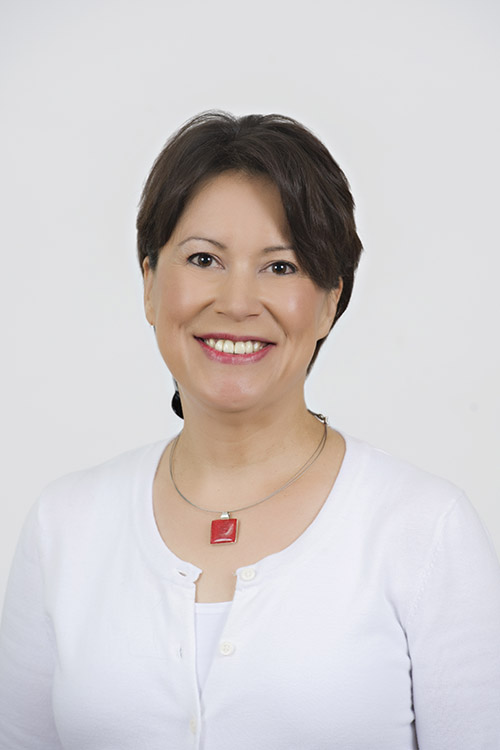 Margaret Kovach (Sakewew p'sim iskwew) is of Plains Cree and Saulteaux ancestry and
a member of Pasqua First Nation located in southern Saskatchewan. She is currently
a Professor at the University of Saskatchewan. She is the author of Indigenous Methodologies: Characteristics, Conversations, and Contexts. Dr. Kovach's work focuses on Indigenous research methodologies and Indigenous post-secondary
education. Her publications and oracy scholarship have had a significant impact in
her field and she is nationally and internationally recognized as a leading methodologist
in the area of Indigenous methodologies. Dr. Kovach has been involved in Truth and
Reconciliation Efforts as it impacts post-secondary education, Indigenous research,
and Indigenous scholarship. Recently, her scholarship focuses on upholding and supporting
Indigenous Faculty in post-secondary environments. Dr. Kovach is a member of the College
of the Royal Society of Canada.
Margaret Kovach (Sakewew p'sim iskwew) is of Plains Cree and Saulteaux ancestry and
a member of Pasqua First Nation located in southern Saskatchewan. She is currently
a Professor at the University of Saskatchewan. She is the author of Indigenous Methodologies: Characteristics, Conversations, and Contexts. Dr. Kovach's work focuses on Indigenous research methodologies and Indigenous post-secondary
education. Her publications and oracy scholarship have had a significant impact in
her field and she is nationally and internationally recognized as a leading methodologist
in the area of Indigenous methodologies. Dr. Kovach has been involved in Truth and
Reconciliation Efforts as it impacts post-secondary education, Indigenous research,
and Indigenous scholarship. Recently, her scholarship focuses on upholding and supporting
Indigenous Faculty in post-secondary environments. Dr. Kovach is a member of the College
of the Royal Society of Canada.
Moderator:
Heidi Lucero, M.A.C.S. '19
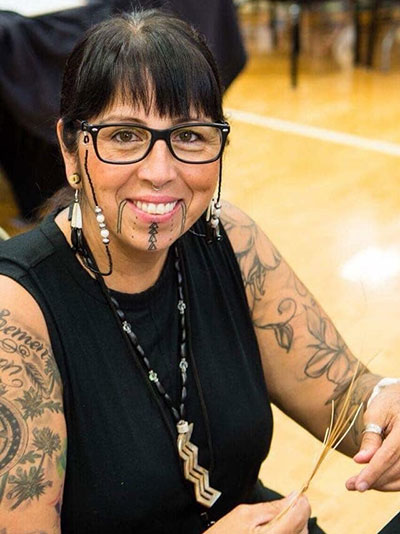 Heidi Lucero is an Indigenous Anthropologist and Professor in the Native American
Studies department at California State University Long Beach. She is a descendent
of the Juaneño Band of Mission Indians Acjachemen Nation and Mutsun Ohlone tribes
of California. She is working hard to assist her tribes in reviving traditional cultural
ways and asserting Indigenous identity through traditional tattooing. She has made
it a focus of her life to implement the policies of the Native American Graves Protection
and Repatriation Act (NAGPRA) and promote the return of ancestors and sacred objects
to their tribes of origin. It is her hope that all Indigenous ancestors and objects
be returned and that they continue to help sustain Indigenous communities in the future.
Heidi Lucero is an Indigenous Anthropologist and Professor in the Native American
Studies department at California State University Long Beach. She is a descendent
of the Juaneño Band of Mission Indians Acjachemen Nation and Mutsun Ohlone tribes
of California. She is working hard to assist her tribes in reviving traditional cultural
ways and asserting Indigenous identity through traditional tattooing. She has made
it a focus of her life to implement the policies of the Native American Graves Protection
and Repatriation Act (NAGPRA) and promote the return of ancestors and sacred objects
to their tribes of origin. It is her hope that all Indigenous ancestors and objects
be returned and that they continue to help sustain Indigenous communities in the future.
There will be a short break at 11:00 a.m. / M.A.C.S. Café
Cultural Sustainability and Community Well-Being (11:15 – 1:15)
Cultural activists, such as our speakers today, recognize the deep connection between cultural traditions, identity, and community well-being. They demonstrate that by paying attention to culture and honoring its critical role in our sense of self, we create the conditions for cultures to thrive.
11:15 a.m. - Indigenous Culture and Activism
Dr. Y. Hesheto Chishi
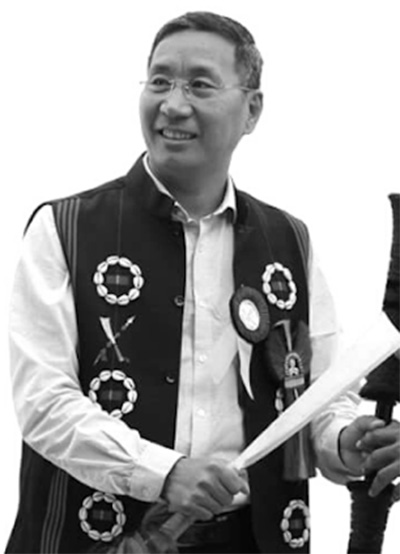 As the Founder and Director of the Indigenous Cultural Society Nagaland, Chishi has transformed tribal and indigenous cultural standards to a national and
international level. His work revitalizing Naga cultural values as well as reviving
an ancestral village resulted in accreditation from UNESCO and ICCN. Chishi also established
the first Folk Arts school in the Nagaland state in 2007, and was one of the key players
in promoting a Traditional Community Healthcare Provider program. He received the
Governor’s Award in the field of Folk Art in 2018.
As the Founder and Director of the Indigenous Cultural Society Nagaland, Chishi has transformed tribal and indigenous cultural standards to a national and
international level. His work revitalizing Naga cultural values as well as reviving
an ancestral village resulted in accreditation from UNESCO and ICCN. Chishi also established
the first Folk Arts school in the Nagaland state in 2007, and was one of the key players
in promoting a Traditional Community Healthcare Provider program. He received the
Governor’s Award in the field of Folk Art in 2018.
Moderator:
Jamie Andrew, M.A.C.S. ‘13
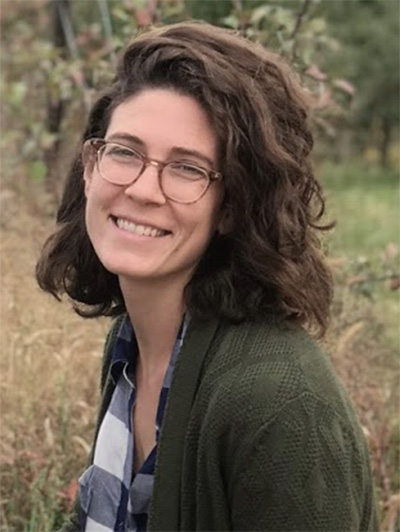 As the Head of Program Development at Academic Experiences Abroad (AEA), Jamie Andrew
has managed, run, and grown AEA’s number of faculty-led study abroad programs in 95
countries over the last 5+ years. With a background in Cultural Sustainability, the
Arts, and Education, she loves nothing more than to come up with creative solutions
to new challenges. Her previous professional experience in the non-profit field has
instilled in her a commitment to mission-driven work, whether in the private or public
sector. She is based in Portland, Maine, but has lived in Europe and traveled extensively
in Latin America. Since March, she has been working to pivot study abroad to virtual
education opportunities.
As the Head of Program Development at Academic Experiences Abroad (AEA), Jamie Andrew
has managed, run, and grown AEA’s number of faculty-led study abroad programs in 95
countries over the last 5+ years. With a background in Cultural Sustainability, the
Arts, and Education, she loves nothing more than to come up with creative solutions
to new challenges. Her previous professional experience in the non-profit field has
instilled in her a commitment to mission-driven work, whether in the private or public
sector. She is based in Portland, Maine, but has lived in Europe and traveled extensively
in Latin America. Since March, she has been working to pivot study abroad to virtual
education opportunities.
12:15 - 1:00 p.m. -- Place-based Learning and Traditional Agricultural Practices in Ireland
Gráinne Barron & Aoife Forde
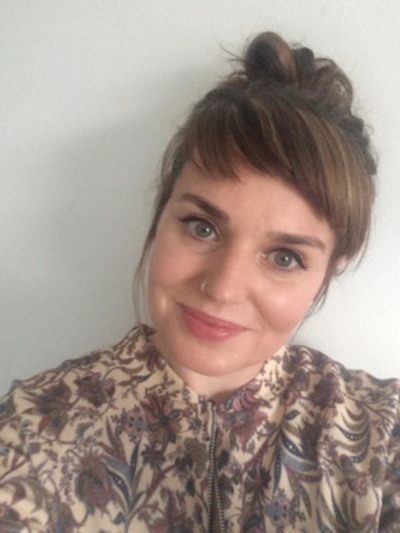 Gráinne is education co-ordinator with the Burrenbeo Trust, based in Kinvara, Co.
Galway, Ireland. Gráinne uses the local environment as a learning landscape to help
children learn about the natural, built and cultural heritage of their locality in
a hands-on way. Gráinne has a Masters in Sustainable Resource Managament, and a good
degree of familiarity in delivering and devising programmes with an emphasis on Place
Based Learning.
Gráinne is education co-ordinator with the Burrenbeo Trust, based in Kinvara, Co.
Galway, Ireland. Gráinne uses the local environment as a learning landscape to help
children learn about the natural, built and cultural heritage of their locality in
a hands-on way. Gráinne has a Masters in Sustainable Resource Managament, and a good
degree of familiarity in delivering and devising programmes with an emphasis on Place
Based Learning.
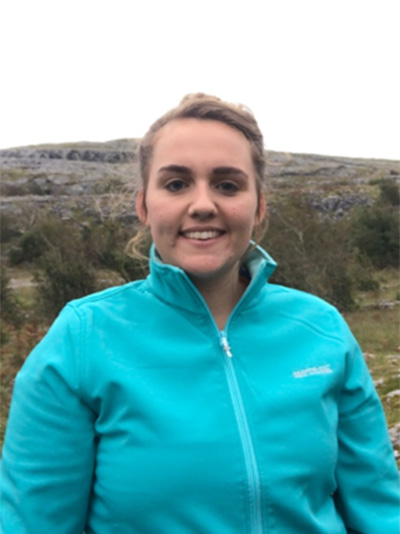 Gráinne will be joined by Aoife Forde, a suckler farmer from Carron in the heart of
the Burren in Co. Clare. Aoife has had a passion for agriculture from a very young
age. Working and studying in the agricultural sector has allowed Aoife to gain a deeper
insight into how unique the system of Winterage practiced in the Burren really is.
Farming along with her parents, they run a 45-cow suckler herd; in late October, the
calves are moved from the lush green fields up to the hills of the Burren known as
Winterages. From the age of six, Aoife can remember helping her father walk their
cows two and a half miles up the road to the Winterage for the winter months, something
they continue to do every year on their farm.
Gráinne will be joined by Aoife Forde, a suckler farmer from Carron in the heart of
the Burren in Co. Clare. Aoife has had a passion for agriculture from a very young
age. Working and studying in the agricultural sector has allowed Aoife to gain a deeper
insight into how unique the system of Winterage practiced in the Burren really is.
Farming along with her parents, they run a 45-cow suckler herd; in late October, the
calves are moved from the lush green fields up to the hills of the Burren known as
Winterages. From the age of six, Aoife can remember helping her father walk their
cows two and a half miles up the road to the Winterage for the winter months, something
they continue to do every year on their farm.
Moderator:
Michelle Banks, M.A.C.S. ‘13
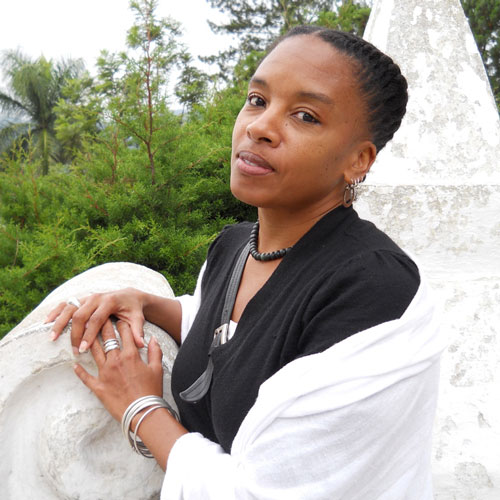 Michelle Banks is a cultural worker from Washington, DC. A 2012 graduate of the M.A.C.S.
program, she is a PhD candidate in Sustainability Education at Prescott College where
she is also an associate faculty member. A transient resident of San Cristóbal Verapaz,
Guatemala, Michelle's dissertation research explores the nexus of violence and placemaking
in post-conflict Guatemala. Her research disciplines include historical memory, biocultural
diversity, critical place inquiry, and epistemicide. She earned her BA in Cultural
Studies at Union Institute & University (Vermont College).
Michelle Banks is a cultural worker from Washington, DC. A 2012 graduate of the M.A.C.S.
program, she is a PhD candidate in Sustainability Education at Prescott College where
she is also an associate faculty member. A transient resident of San Cristóbal Verapaz,
Guatemala, Michelle's dissertation research explores the nexus of violence and placemaking
in post-conflict Guatemala. Her research disciplines include historical memory, biocultural
diversity, critical place inquiry, and epistemicide. She earned her BA in Cultural
Studies at Union Institute & University (Vermont College).
There will be a Lunch break from 1:00 - 1:30 p.m. / M.A.C.S. Café
Cultural Sustainability & Equity (1:45 – 3:30)
Cultural sustainability is as much about amplifying multiple voices within a community as it is about ensuring all cultures have agency and access to the resources that nurture resilience. Our speakers this afternoon share initiatives grounded in equity and community-driven research.
1:30 - 2:15 p.m. - Ghanaian Storytelling: Resilience and Sophisticated Legacy
Dr. Sarah Dorgbadzi
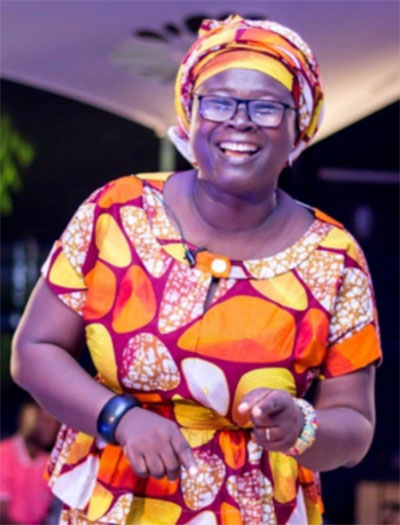 Founder and Director of the Lododo Art Foundation and a faculty member in the Department
of Theatre Arts at the School of Performing Arts, University of Ghana, Sarah is a
storyteller, actor, director and a performer. She has been involved in reviving and
documenting storytelling traditions in various Ghanaian communities and given a number
of presentations and storytelling performances at both national and international
conferences. She believes it is necessary to leave a legacy of this sophistication
of Ghanaian culture to the next generation through the experience of Ghanaian storytelling
from various sub-cultures of Ghana, and to provide the contemporary Ghanaian an opportunity
to participate in storytelling.
Founder and Director of the Lododo Art Foundation and a faculty member in the Department
of Theatre Arts at the School of Performing Arts, University of Ghana, Sarah is a
storyteller, actor, director and a performer. She has been involved in reviving and
documenting storytelling traditions in various Ghanaian communities and given a number
of presentations and storytelling performances at both national and international
conferences. She believes it is necessary to leave a legacy of this sophistication
of Ghanaian culture to the next generation through the experience of Ghanaian storytelling
from various sub-cultures of Ghana, and to provide the contemporary Ghanaian an opportunity
to participate in storytelling.
Moderator:
Queen Nur, M.A.C.S. ‘12
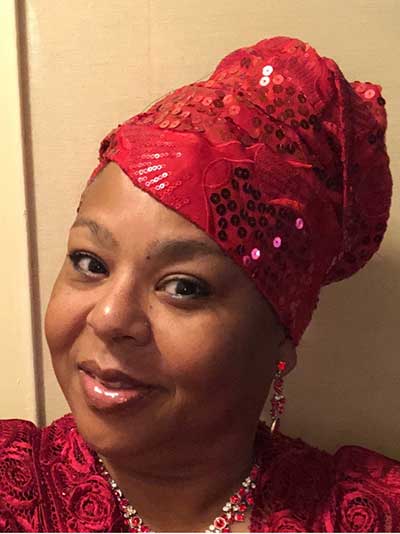 Karen "Queen Nur"Abdul-Malik is an international storyteller, award-winning teaching
artist and Director of the Folklife Center at Perkins Center for the Arts. Queen received
her Masters of Arts in Cultural Sustainability from Goucher College in 2012. For 27
years she has performed in 36 states, Canada and West Africa at such venues as The
Opening of the Smithsonian National African American Museum of Culture and History;
PANAFEST in Ghana; Tour of Cameroon for the US Embassy and as the Emcee for the National
Heritage Fellowship Awards of the National Endowment for the Arts.
Karen "Queen Nur"Abdul-Malik is an international storyteller, award-winning teaching
artist and Director of the Folklife Center at Perkins Center for the Arts. Queen received
her Masters of Arts in Cultural Sustainability from Goucher College in 2012. For 27
years she has performed in 36 states, Canada and West Africa at such venues as The
Opening of the Smithsonian National African American Museum of Culture and History;
PANAFEST in Ghana; Tour of Cameroon for the US Embassy and as the Emcee for the National
Heritage Fellowship Awards of the National Endowment for the Arts.
2:30 – 3:00 p.m. - Cultural Sustainability in the Peruvian Amazon Flooded Forests
Sue Eleuterio & Kimberlyn Chota Pinedo
Facilitated by MACS faculty member Sue Eleuterio and Kimberlyn Chota Pinedo, this dialogue will explore models of community building using the work of the Peruvian Amazon Riverboat Exploration team as a springboard for discussion.
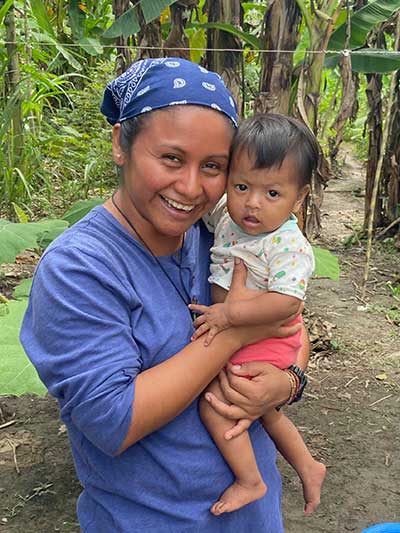 Kimberlyn is an Investigator with Fund Amazonia. She is from Iquitos, Peru and studied
biology at the National University of the Peruvian Amazon. She has built an exemplary
program with the Riverboat Exploration team, which is both innovative and visionary
through its concentration on local and regional community members as equal team members.
Not only are they involved in carrying out research, but in designing and managing
a variety of programs including bringing in student groups, working with local educators,
finding funding and support through international programs such as Earth Watch, and
using scientific data as support for the advocacy work of indigenous populations.
Kimberlyn is an Investigator with Fund Amazonia. She is from Iquitos, Peru and studied
biology at the National University of the Peruvian Amazon. She has built an exemplary
program with the Riverboat Exploration team, which is both innovative and visionary
through its concentration on local and regional community members as equal team members.
Not only are they involved in carrying out research, but in designing and managing
a variety of programs including bringing in student groups, working with local educators,
finding funding and support through international programs such as Earth Watch, and
using scientific data as support for the advocacy work of indigenous populations.
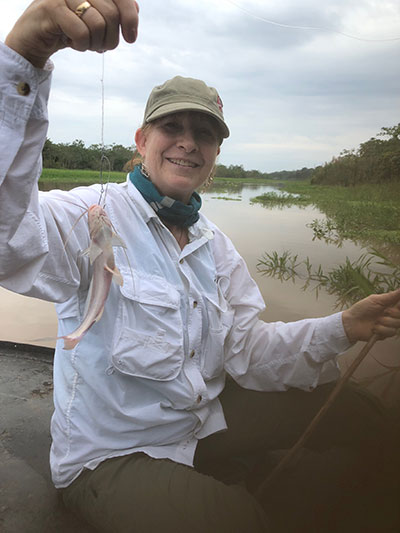 Sue Eleuterio is a folklorist, educator, and consultant to non-profits. She received
her MA in American Folk Culture in the Cooperstown Graduate Program (SUNY/Oneonta)
and her BA in English/Education from the University of Delaware. She currently serves
as Director for the Graduate Virtual Writing Center at Goucher and adjunct faculty
member of the MACS Program where she teaches community organizing and advocacy. She
has conducted fieldwork and developed public programs including exhibits, performances,
folk arts education workshops and residencies in schools, and professional development
programs for teachers, students, adults, and artists for schools, museums, arts education
agencies and arts organizations across the United States. She was nominated for a
Golden Apple Excellence in Teaching Award and received internships from the National
Endowment for the Humanities and the National Museum Act.
Sue Eleuterio is a folklorist, educator, and consultant to non-profits. She received
her MA in American Folk Culture in the Cooperstown Graduate Program (SUNY/Oneonta)
and her BA in English/Education from the University of Delaware. She currently serves
as Director for the Graduate Virtual Writing Center at Goucher and adjunct faculty
member of the MACS Program where she teaches community organizing and advocacy. She
has conducted fieldwork and developed public programs including exhibits, performances,
folk arts education workshops and residencies in schools, and professional development
programs for teachers, students, adults, and artists for schools, museums, arts education
agencies and arts organizations across the United States. She was nominated for a
Golden Apple Excellence in Teaching Award and received internships from the National
Endowment for the Humanities and the National Museum Act.
3:00 – 3:30pm - Sounding Gullah Geechee Sustainability While Black at the Original Gullah Festival South Carolina
Douglas Peach & Charlotte Brown
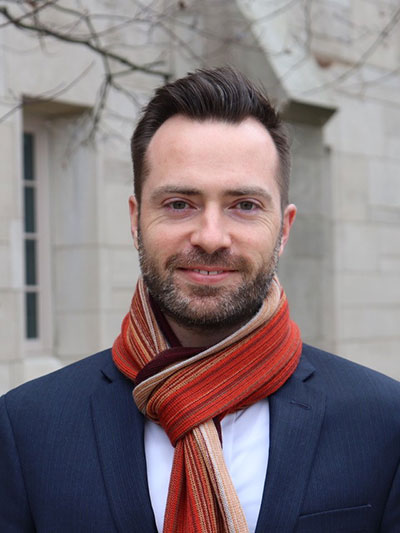 Douglas D. Peach is a PhD Candidate in the Department of Folklore and Ethnomusicology
at Indiana University. Funded by the National Science Foundation, his primary research
focuses on heritage, cultural sustainability, race, and musical performance among
Gullah Geechees in coastal South Carolina.
Douglas D. Peach is a PhD Candidate in the Department of Folklore and Ethnomusicology
at Indiana University. Funded by the National Science Foundation, his primary research
focuses on heritage, cultural sustainability, race, and musical performance among
Gullah Geechees in coastal South Carolina.
Additionally, his work explores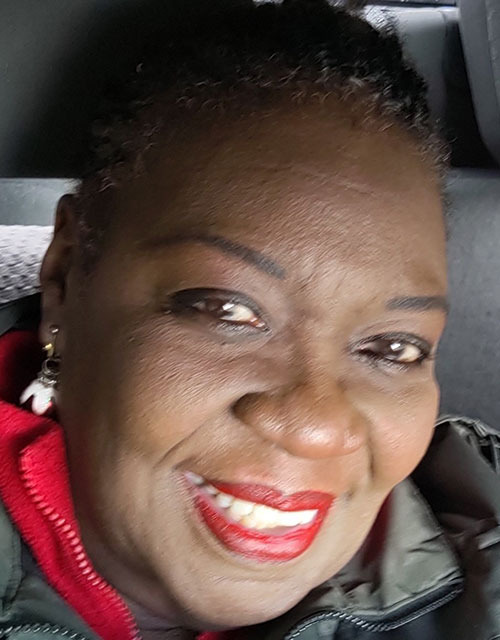 the transnational circulation of Gullah Geechee heritage in Sierra Leone. He is the
co-author of Ola Belle Reed and Southern Mountain Music on the Mason-Dixon Line (with
Henry Glassie and Clifford Murphy) and is the former South Carolina Folklife and Traditional
Arts Program Director at McKissick Museum and the South Carolina Arts Commission.
Peach will be joined by former Original Gullah Festival CEO, Charlotte Brown. Brown
is a native of Beaufort, South Carolina and was a part of the group of Gullah women
who created the event.
the transnational circulation of Gullah Geechee heritage in Sierra Leone. He is the
co-author of Ola Belle Reed and Southern Mountain Music on the Mason-Dixon Line (with
Henry Glassie and Clifford Murphy) and is the former South Carolina Folklife and Traditional
Arts Program Director at McKissick Museum and the South Carolina Arts Commission.
Peach will be joined by former Original Gullah Festival CEO, Charlotte Brown. Brown
is a native of Beaufort, South Carolina and was a part of the group of Gullah women
who created the event.
Moderator:
Kyle Clanton, M.A.C.S. ‘18
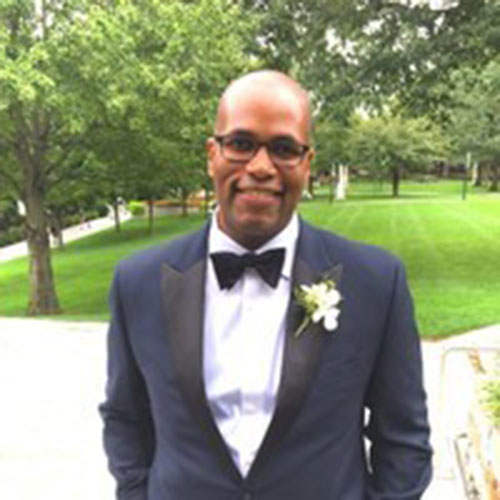 Kyle has a background in education, community organizing, workforce development, and
public radio production. He recently graduated from Goucher College with a master’s
degree in Cultural Sustainability. A recent Little Rock transplant, Kyle has spent
most of his life in Philadelphia, PA, Cherry Hill, NJ, and Baltimore, MD. Kyle has
a passion for social justice, learning, and helping others. When he’s not working,
Kyle can be found traveling with family and friends, hanging out with his dog, or
listening to music.
Kyle has a background in education, community organizing, workforce development, and
public radio production. He recently graduated from Goucher College with a master’s
degree in Cultural Sustainability. A recent Little Rock transplant, Kyle has spent
most of his life in Philadelphia, PA, Cherry Hill, NJ, and Baltimore, MD. Kyle has
a passion for social justice, learning, and helping others. When he’s not working,
Kyle can be found traveling with family and friends, hanging out with his dog, or
listening to music.
There will be short breaks at 3:30 p.m. and 4:30 p.m. / M.A.C.S. Café
Cultural Sustainability and the Future (3:45 – 6:00)
Ten years after the creation of the MA in Cultural Sustainability program, we stand at a pivotal moment in time. The concepts that drive our work -- equity, resilience, and community well-being -- are being threatened and yet are key to our survival as a planet. Join this panel of leading thinkers in the field for a conversation about what cultural sustainability has to offer this moment and the moments going forward.
3:45 p.m. - My Armenia, a Cultural Sustainability Project of the Smithsonian Center for Folklife and Cultural Heritage
Halle Butvin
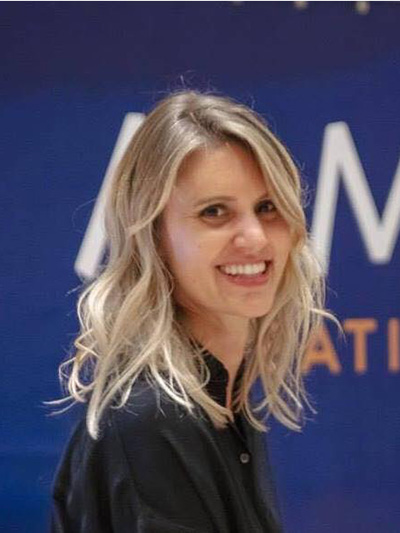 Halle Butvin joined the Center for Folklife and Cultural Heritage as director of special
projects in 2016, following three years as an advisor at the Smithsonian’s Office
of International Relations. She is responsible for expanding the reach of the cultural
sustainability work around the world, designing collaborative projects to support
communities, safeguard their heritage, promote cultural expression, and elevate cultural
practices to improve local economies. My Armenia Cultural Heritage Tourism Program
uses research and presentation methods from the Folklife Festival to harness the power
of storytelling to strengthen cultural heritage sustainability through community-based
tourism development. Halle designed the My Armenia program and will be joined in conversation
with
Halle Butvin joined the Center for Folklife and Cultural Heritage as director of special
projects in 2016, following three years as an advisor at the Smithsonian’s Office
of International Relations. She is responsible for expanding the reach of the cultural
sustainability work around the world, designing collaborative projects to support
communities, safeguard their heritage, promote cultural expression, and elevate cultural
practices to improve local economies. My Armenia Cultural Heritage Tourism Program
uses research and presentation methods from the Folklife Festival to harness the power
of storytelling to strengthen cultural heritage sustainability through community-based
tourism development. Halle designed the My Armenia program and will be joined in conversation
with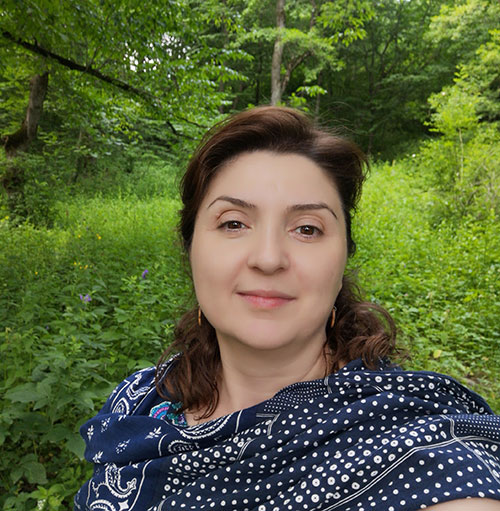 Ruzanna Tsaturyan, scholar from My Armenia's research partner, the Institute of Archaeology and Ethnography
at the National Academy of Sciences of the Republic of Armenia, as well as Ashkhen
Ruzanna Tsaturyan, scholar from My Armenia's research partner, the Institute of Archaeology and Ethnography
at the National Academy of Sciences of the Republic of Armenia, as well as Ashkhen 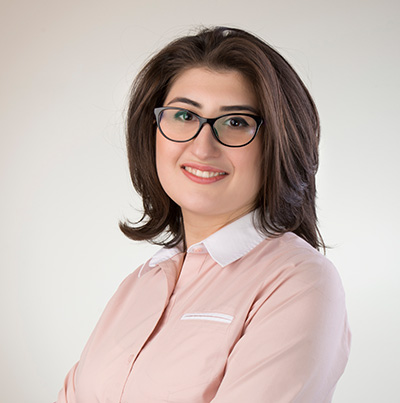 Khudaverdyan, Senior Enterprise Specialist responsible for the program's work with artisans. Each
participant also played a key role in the Armenia: Creating Home program at the 2018
Smithsonian Folklife Festival (Halle and Ruzanna were co-curators and Ashkhen presented
the participatory artisan workshop).
Khudaverdyan, Senior Enterprise Specialist responsible for the program's work with artisans. Each
participant also played a key role in the Armenia: Creating Home program at the 2018
Smithsonian Folklife Festival (Halle and Ruzanna were co-curators and Ashkhen presented
the participatory artisan workshop).
Moderator:
Cecelia Ottenweller, M.A.C.S. ‘19
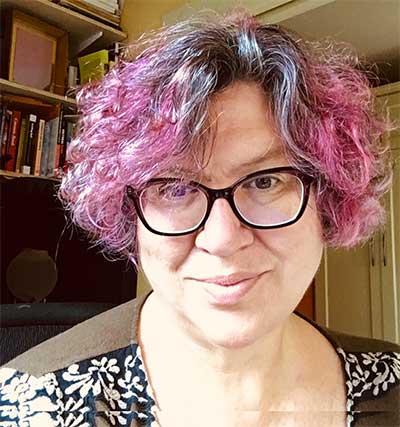 Cecelia Ottenweller is a recent graduate of the Master of Arts in the Cultural Sustainability
at Goucher College in Towson, Maryland. Her research focus is in the creation of community-based
approaches in reducing health disparities. Before returning to school to earn her
advanced degree, she was a creative director and senior consultant for a digital media
firm in Houston, Texas. She has been an independent exhibit writer and content strategist
with projects that have included the McNair Asian Elephant Exhibit at the Houston
Zoo, the Virgin of Guadalupe exhibit audio tour for the Houston Museum of Natural
Science, and the You Are The Exhibit tags and research for the John P. McGovern Museum of Medical Science in Houston.
She also wrote the commemorative history of the Houston Branch of the Federal Reserve
Bank of Dallas. Cecelia was one of four Goucher College graduate students selected
to participate in the Saving What Matters international preservation collaboration (St. Michaels, MD/Bosnia & Herzegovia), which
was funded in part by the U.S. Department of State’s Communities Connecting HeritageSM Program. The collaboration received the 2018 Best New Heritage Initiative by the
Lower Eastern Shore Heritage Council. She resides in Houston and is an independent
ethnographer and strategy consultant working with nonprofits desiring more meaningful
connections with their communities.
Cecelia Ottenweller is a recent graduate of the Master of Arts in the Cultural Sustainability
at Goucher College in Towson, Maryland. Her research focus is in the creation of community-based
approaches in reducing health disparities. Before returning to school to earn her
advanced degree, she was a creative director and senior consultant for a digital media
firm in Houston, Texas. She has been an independent exhibit writer and content strategist
with projects that have included the McNair Asian Elephant Exhibit at the Houston
Zoo, the Virgin of Guadalupe exhibit audio tour for the Houston Museum of Natural
Science, and the You Are The Exhibit tags and research for the John P. McGovern Museum of Medical Science in Houston.
She also wrote the commemorative history of the Houston Branch of the Federal Reserve
Bank of Dallas. Cecelia was one of four Goucher College graduate students selected
to participate in the Saving What Matters international preservation collaboration (St. Michaels, MD/Bosnia & Herzegovia), which
was funded in part by the U.S. Department of State’s Communities Connecting HeritageSM Program. The collaboration received the 2018 Best New Heritage Initiative by the
Lower Eastern Shore Heritage Council. She resides in Houston and is an independent
ethnographer and strategy consultant working with nonprofits desiring more meaningful
connections with their communities.
4:45 p.m. - Cultural Sustainability: Where do we go from here? Reflections and Perspectives
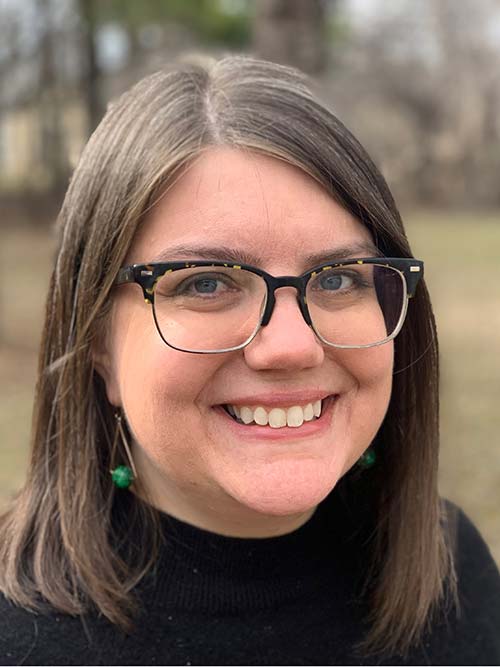 Michele Anderson, director of Springboard for the Arts in Fergus Falls, Minnesota. Michele is a composer,
creative writer, and pianist with a BA in Music from Lewis and Clark College, and
an MA in Cultural Sustainability from Goucher College, where she was awarded the inaugural
Rory Turner Prize in Cultural Sustainability. In 2015, Michele was selected by the
Minnesota Council of Nonprofits for their Catalytic Leader Award. She is an advocate
for rural communities and received acclaim when she wrote an op-ed piece for the New
York Times in response to a German newspaper that stereotyped rural America after
the 2016 elections. She is currently running for State Senate in Minnesota.
Michele Anderson, director of Springboard for the Arts in Fergus Falls, Minnesota. Michele is a composer,
creative writer, and pianist with a BA in Music from Lewis and Clark College, and
an MA in Cultural Sustainability from Goucher College, where she was awarded the inaugural
Rory Turner Prize in Cultural Sustainability. In 2015, Michele was selected by the
Minnesota Council of Nonprofits for their Catalytic Leader Award. She is an advocate
for rural communities and received acclaim when she wrote an op-ed piece for the New
York Times in response to a German newspaper that stereotyped rural America after
the 2016 elections. She is currently running for State Senate in Minnesota.
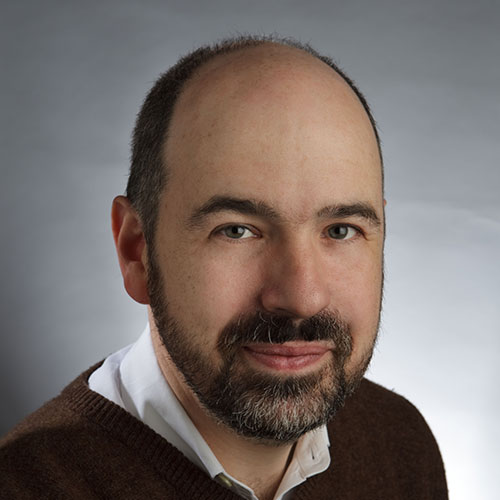 Michael Atwood Mason, executive director of the Smithsonian Center for Folklife and Cultural Heritage.
Michael began his career at the Smithsonian in 1992, working first at the Anacostia
Community Museum and then, starting in 1994, at the National Museum of Natural History,
where he served as exhibit developer and later as director of exhibitions. He has
developed, curated, and managed more than sixty exhibitions, including African Voices, Ritmos de Identidad/Rhythms of Identity, Discovering Rastafari, and the inaugural exhibition at the Maryland Museum of African-American History
and Culture. Since 1987, he has been studying the religions and cultures of the African
diaspora, and he is the author of Living Santería: Rituals and Experiences in an Afro-Cuban Religion (Smithsonian Institution Press, 2002) and the cultural blog Baba Who? Babalú!. He also teaches courses on the politics of representation and the development of
community-based exhibitions in the cultural sustainability program at Goucher College.
Michael holds a PhD in folklore, with a double minor in religion, from Indiana University.
Michael Atwood Mason, executive director of the Smithsonian Center for Folklife and Cultural Heritage.
Michael began his career at the Smithsonian in 1992, working first at the Anacostia
Community Museum and then, starting in 1994, at the National Museum of Natural History,
where he served as exhibit developer and later as director of exhibitions. He has
developed, curated, and managed more than sixty exhibitions, including African Voices, Ritmos de Identidad/Rhythms of Identity, Discovering Rastafari, and the inaugural exhibition at the Maryland Museum of African-American History
and Culture. Since 1987, he has been studying the religions and cultures of the African
diaspora, and he is the author of Living Santería: Rituals and Experiences in an Afro-Cuban Religion (Smithsonian Institution Press, 2002) and the cultural blog Baba Who? Babalú!. He also teaches courses on the politics of representation and the development of
community-based exhibitions in the cultural sustainability program at Goucher College.
Michael holds a PhD in folklore, with a double minor in religion, from Indiana University.
Margaret Kovach
 Margaret Kovach (Sakewew p'sim iskwew) is of Plains Cree and Saulteaux ancestry and
a member of Pasqua First Nation located in southern Saskatchewan. She is currently
a Professor at the University of Saskatchewan. She is the author of Indigenous Methodologies: Characteristics, Conversations, and Contexts. Dr. Kovach's work focuses on Indigenous research methodologies and Indigenous post-secondary
education. Her publications and oracy scholarship have had a significant impact in
her field and she is nationally and internationally recognized as a leading methodologist
in the area of Indigenous methodologies. Dr. Kovach has been involved in Truth and
Reconciliation Efforts as it impacts post-secondary education, Indigenous research,
and Indigenous scholarship. Recently, her scholarship focuses on upholding and supporting
Indigenous Faculty in post-secondary environments. Dr. Kovach is a member of the College
of the Royal Society of Canada.
Margaret Kovach (Sakewew p'sim iskwew) is of Plains Cree and Saulteaux ancestry and
a member of Pasqua First Nation located in southern Saskatchewan. She is currently
a Professor at the University of Saskatchewan. She is the author of Indigenous Methodologies: Characteristics, Conversations, and Contexts. Dr. Kovach's work focuses on Indigenous research methodologies and Indigenous post-secondary
education. Her publications and oracy scholarship have had a significant impact in
her field and she is nationally and internationally recognized as a leading methodologist
in the area of Indigenous methodologies. Dr. Kovach has been involved in Truth and
Reconciliation Efforts as it impacts post-secondary education, Indigenous research,
and Indigenous scholarship. Recently, her scholarship focuses on upholding and supporting
Indigenous Faculty in post-secondary environments. Dr. Kovach is a member of the College
of the Royal Society of Canada.
 Michelle Banks is a cultural worker from Washington, DC. A 2012 graduate of the M.A.C.S. program,
she is a PhD candidate in Sustainability Education at Prescott College where she is
also an associate faculty member. A transient resident of San Cristóbal Verapaz, Guatemala,
Michelle's dissertation research explores the nexus of violence and placemaking in
post-conflict Guatemala. Her research disciplines include historical memory, biocultural
diversity, critical place inquiry, and epistemicide. She earned her BA in Cultural
Studies at Union Institute & University (Vermont College).
Michelle Banks is a cultural worker from Washington, DC. A 2012 graduate of the M.A.C.S. program,
she is a PhD candidate in Sustainability Education at Prescott College where she is
also an associate faculty member. A transient resident of San Cristóbal Verapaz, Guatemala,
Michelle's dissertation research explores the nexus of violence and placemaking in
post-conflict Guatemala. Her research disciplines include historical memory, biocultural
diversity, critical place inquiry, and epistemicide. She earned her BA in Cultural
Studies at Union Institute & University (Vermont College).
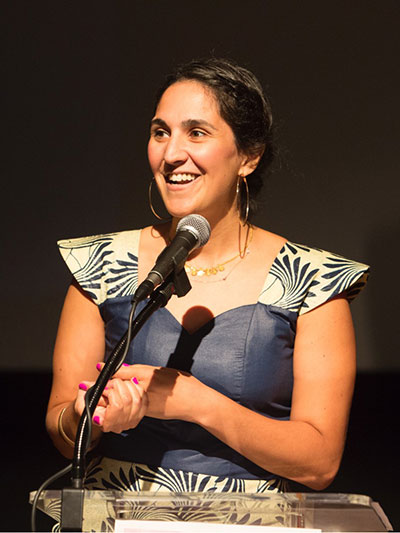 Selina Morales is a public folklorist who consults nationally on projects at the intersection of
community aesthetics and social justice. From 2010-2019 Selina worked with the Philadelphia
Folklore Project, for the last 5 years as the Director. She is faculty member in the
Masters of Arts in Cultural Sustainability program at Goucher College, and on the
Advisory Council to the Smithsonian Center for Folklife and Cultural Heritage. In
2017, Selina was honored as one of the Delaware Valley’s 50 Most Influential Latinos.
She is currently working with Southwest Folklife Alliance on the national Radical
Imagination for Racial Justice initiative, coaching community-based researchers to
document and interpret racial justice projects in their own ALAANA communities.
Selina Morales is a public folklorist who consults nationally on projects at the intersection of
community aesthetics and social justice. From 2010-2019 Selina worked with the Philadelphia
Folklore Project, for the last 5 years as the Director. She is faculty member in the
Masters of Arts in Cultural Sustainability program at Goucher College, and on the
Advisory Council to the Smithsonian Center for Folklife and Cultural Heritage. In
2017, Selina was honored as one of the Delaware Valley’s 50 Most Influential Latinos.
She is currently working with Southwest Folklife Alliance on the national Radical
Imagination for Racial Justice initiative, coaching community-based researchers to
document and interpret racial justice projects in their own ALAANA communities.
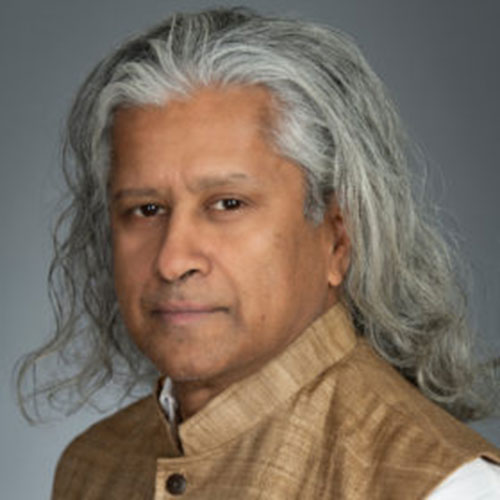 Guha Shankar is a Folklife Specialist at the American Folklife Center, Library of Congress, Washington,
D.C. He is involved in a range of public outreach programs, including multi-media
productions and documentation efforts, blog contributions, and the AFC’s lectures,
symposia, and concert series. He coordinates the Ancestral Voices initiative, a cultural heritage return collaboration with Native American communities,
and directs the Civil Rights History Project, a national oral history documentation and access effort. He conducts workshops in
ethnographic research methods and skills-based training in field documentation; he
taught the initial “Cultural Policy” seminars in the MACS program (2009-10). Shankar’s
research interests and publications focus on intangible cultural heritage and intellectual
property for indigenous communities, cultural politics and performance in the Caribbean
and ethnographic media production and preservation. He has produced and edited films
on material cultural traditions and community life in a variety of cultural contexts.
Shankar earned his Ph.D. in 2003 from the Department of Anthropology, University of
Texas at Austin, with a concentration in Folklore and Public Culture.
Guha Shankar is a Folklife Specialist at the American Folklife Center, Library of Congress, Washington,
D.C. He is involved in a range of public outreach programs, including multi-media
productions and documentation efforts, blog contributions, and the AFC’s lectures,
symposia, and concert series. He coordinates the Ancestral Voices initiative, a cultural heritage return collaboration with Native American communities,
and directs the Civil Rights History Project, a national oral history documentation and access effort. He conducts workshops in
ethnographic research methods and skills-based training in field documentation; he
taught the initial “Cultural Policy” seminars in the MACS program (2009-10). Shankar’s
research interests and publications focus on intangible cultural heritage and intellectual
property for indigenous communities, cultural politics and performance in the Caribbean
and ethnographic media production and preservation. He has produced and edited films
on material cultural traditions and community life in a variety of cultural contexts.
Shankar earned his Ph.D. in 2003 from the Department of Anthropology, University of
Texas at Austin, with a concentration in Folklore and Public Culture.
Moderator:
Rory Turner
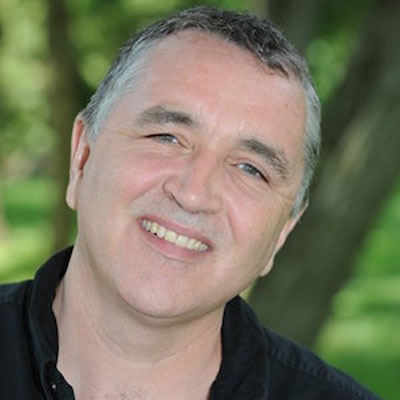 Rory Turner, Ph.D. (Indiana University Folklore Institute) is a Professor of Practice
in Goucher College's Center for People, Politics, and Markets’ Sociology and Anthropology
program. He designed, launched and continues to teach in Goucher College's Master
of the Arts in Cultural Sustainability Program. Formerly Program Director for Folk
and Traditional Arts and Program Initiative Specialist at the Maryland State Arts
Council, he co-founded and directed the Maryland Traditions program from 2000-2007.
He also founded and subsequently revived the Baltimore Rhythm Festival. Publications
include articles, reviews and creative writing in such journals as Journal of American Folklore, Folklore Forum, Journal of Folklore Research, Anthropology
and Humanism, and TDR (The Drama Review).
Rory Turner, Ph.D. (Indiana University Folklore Institute) is a Professor of Practice
in Goucher College's Center for People, Politics, and Markets’ Sociology and Anthropology
program. He designed, launched and continues to teach in Goucher College's Master
of the Arts in Cultural Sustainability Program. Formerly Program Director for Folk
and Traditional Arts and Program Initiative Specialist at the Maryland State Arts
Council, he co-founded and directed the Maryland Traditions program from 2000-2007.
He also founded and subsequently revived the Baltimore Rhythm Festival. Publications
include articles, reviews and creative writing in such journals as Journal of American Folklore, Folklore Forum, Journal of Folklore Research, Anthropology
and Humanism, and TDR (The Drama Review).
6:00 p.m. to 7:30 p.m. - Break for Dinner / M.A.C.S. Café
An Evening Celebration
Open to all
7:30 – 7:45 p.m. - Prize and Award Announcement
Announcement of the Rory Turner Prize for best Capstone in Cultural Sustainability and the Harold Atwood Anderson Jr. Award for Cultural Documentation
7:45 - 8:30 p.m. - Virtual Concert
Virtual Concert Watch Party
Amadou Kouyate
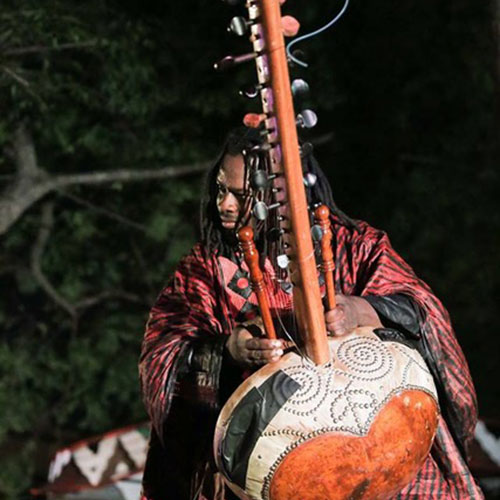
Amadou Kouyate is the 150th generation of the Kouyate family of Manding Diali (oral historians/musicians of West Africa) and the first generation born of his father’s lineage in America. He performs a musical montage on the 21-string Kora and rhythmic presentations on Djembe and Koutiro drums. His repertoire ranges from traditional songs from the 13th century to original contemporary compositions incorporating blues and jazz riffs. In addition to his solo work, Amadou performs with guest artists as well as with The Kouyate Family, Urban Afrikan, Farafina Kan, Manding Jata and Spank Rock.
His credits include performances at The Kennedy Center, Smithsonian Institution, Bristol Academy and Isle of White (England), Tim Festival (Brazil), Lowell, East-Lansing and Dayton National Folk Festivals, DanceAfrica DC, New York and Chicago, with The National Symphony Orchestra, the production "Soul Possessed," directed by Debbie Allen, at Carnegie Hall with Sweet Honey in The Rock. Amadou received the Maryland Start Arts Council Governor’s Citation and other artistic awards from the Arts and Humanities Council of Montgomery County, DC Commission on the Arts and Humanities, Special Talents and Musical Theatre Scholarships at Howard University, and Levine School of Music.
Amadou has studied in Mali, Senegal, Guinea, and Cote d’Ivoire with master musicians of the Diali tradition including Djimo Kouyate and Toumani Diabate. He served as an Adjunct Lecturer in African Music and Ethnomusicology at the University of Maryland and Artist-In-Residence at Montgomery College. He is also a recipient of the Master/Apprenticeship Award of the Maryland State Arts Council and is currently an artist in residence at Strathmore.

